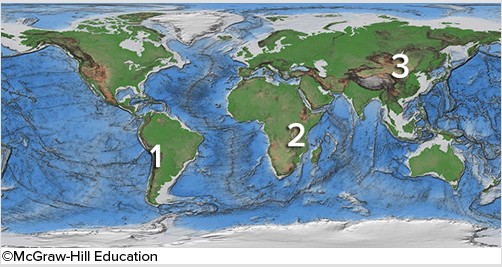Organisms in ____ must be able to avoid being swept away, crushed by waves, or being left high and dry at low tides, and must survive daily or seasonal salinity and temperature changes.
A. estuaries
B. coastal wetlands
C. bathyal zones
D. intertidal zones
E. coral reefs
Answer: D
You might also like to view...
Back-to-land vacations, called eco-vacations, have become one of the most lucrative tourism types, with urban dwellers paying tidy sums to harvest grapes or learn cheese-making on farms
Indicate whether the statement is true or false
A lichen, which is a composite organism consisting of an alga and fungus, is an example of mutualism
Indicate whether the statement is true or false
Which of the following hazards is LEAST likely to be associated with explosive volcanic eruptions?
A. lava flows B. ash fall C. tsunamis D. mudflows E. pyroclastic flows
Which of these regions is high because of mantle upwelling near a continental rift?
A. 1, Andes of South America B. 2, East Africa C. 3, Tibet D. None of these choices are correct.